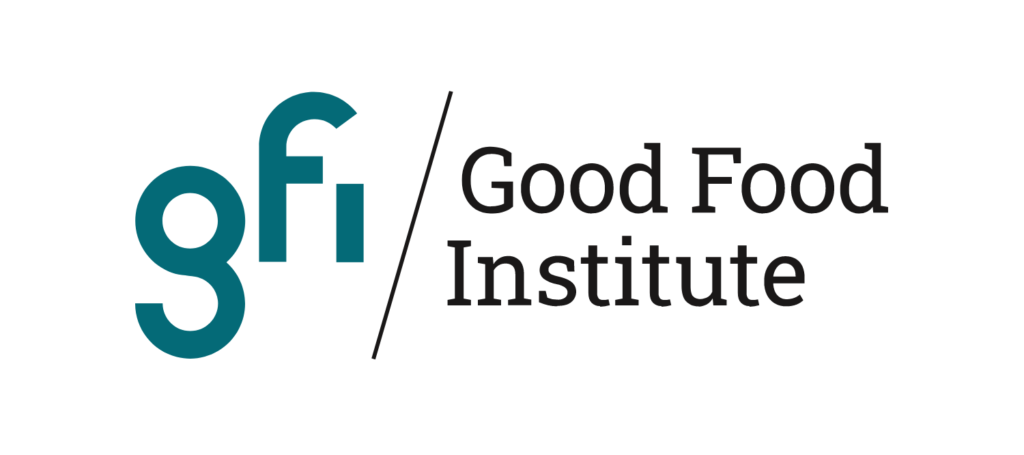
New ESG frameworks raise the bar on sustainability transparency of meat
FAIRR and GFI launch new first-of-their-kind reporting frameworks for alternative meat, seafood, eggs and dairy companies to reveal their climate, biodiversity, nutrition and other ESG impacts
Overview
- Both specialized alternative protein businesses and incumbent food companies are expected to use the new frameworks. PlantPlus Foods, a joint venture between Marfrig and ADM, says the new frameworks will help the company guide its decisions and disclosures “on topics that matter the most to stakeholders, in line with ESG best practices.”
- Frameworks expected to catalyse investment by highlighting the climate benefits of alternative proteins, compared to conventional protein production. Investors such as Boston Trust Walden say frameworks enable investors to better understand company action to manage ESG risks.
- 38 companies and investors and 14 NGOs and ESG standard-setters provided input and expertise in the development of the new frameworks.
LONDON — From plant-based meat to macadamia milk, food producers, retailers and manufacturers can now accurately report on the sustainability impact of their alternative proteins’ businesses thanks to the launch of two new reporting frameworks. The frameworks were designed by the $68trn-backed FAIRR Initiative investor network and the Good Food Institute (‘GFI’), an international non-profit reimagining meat production, and are backed by investors and industry leaders.
FAIRR and GFI co-developed the new frameworks with input from a diverse array of investors, companies and NGOs, including Unilever, Eat Just, Inc., Newton Investment Management, PIMCO, Blue Horizon and the WWF-UK as well as ESG and life cycle assessment (LCA) experts. Following today’s launch, the authors of the frameworks will work with alternative protein brands that want to use the frameworks to report on environmental, social and governance (ESG) factors such as carbon emissions, land, water and nutrition impacts.
Alternative proteins, including plant-based, fermentation-enabled (made using microbes), and cultivated (cultivated from cells) meat, seafood, eggs and dairy, are expected to provide a pathway to decarbonising food production while meeting the global demand for protein. Over the past few years, investment in alternative proteins has increased by an average 5-year growth rate of 91% through 2021 (according to GFI analysis of PitchBook data), and sales are estimated to rise by up to $1.1 trillion by 2040 and devour up to 60% of the total meat market.
Research shows that many plant-based meat products have a fifth to less than a tenth of the environmental impact of meat-based equivalents. Yet until today, there have been no comprehensive standards for companies manufacturing and selling alternative proteins to assess and disclose the kind of rich ESG data that investors and companies, and consumers need to make informed decisions.
FAIRR and GFI’s open source Alternative Proteins ESG Reporting Framework for Specialized Companies (the “Specialized Framework”) and the Alternative Proteins ESG Reporting Framework for Diversified Companies (the “Diversified Framework”) provide investors, governments, and consumers with a route to receiving accurate information from each alternative protein business.
Sharyn Murray, Good Food Institute Investor Engagement Manager: “We are thrilled to produce a reporting tool that will allow alternative protein companies to showcase the many ESG advantages of their current business models. Alternative proteins offer meaningfully lower greenhouse gas emissions as compared to conventional animal protein as well as considerable food safety and nutritional advantages. As the alternative protein industry continues to partner with the private sector to build responsible and sustainable businesses of the future, these frameworks will enable companies to claim their natural leadership role on ESG. This will lift up and guide all alternative protein companies toward best practices and the use of one common language to reveal the huge planetary rewards the industry offers.”
Jeremy Coller, Chair and Founder of FAIRR, and Chief Investment Officer of Coller Capital said: “FAIRR is pleased to partner with GFI on these landmark frameworks for the alternative protein industry. As the old adage goes – you cannot manage what you cannot measure – these frameworks provide investors and companies with a common language and set of standards to measure and disclose how they are managing their ESG impacts and addressing climate goals. We expect that FAIRR’s members, representing $68trillion AuM, will welcome the frameworks as a further tool in their investment process. We hope to see both large protein producers in the Coller FAIRR Protein Producer Index and smaller specialised alternative protein companies adopt it, which will benefit the market as a whole.”
The new Specialized Framework is designed for manufacturers and ingredient suppliers whose core focus is alternative proteins, such as meat, dairy or whey protein, or gelatin. It encapsulates the most material risks and opportunities across the full E, S and G spectrum, for example, on sourcing, certification, consumer engagement, soil health, plastic waste, water consumption and nutrition.
Lisa Wetstone, Senior Director, Marketing, Innovation & Growth Strategy, mushroom-focused company MycoTechnology, Inc. said in response to the launch of the Specialized Framework: “This framework will empower companies to measure and communicate positive impact in ways that make sense and matter. For internal strategy and decision-making, and for consumers. From small startups to growth-stage startups like MycoTechology to established industry players, there are so many ways to gather and interpret ESG data. This is especially true given the nuances of our industry. We are lacking a common language! Laying the groundwork to standardize this information can be a guide for us all, and lift the industry up as a whole.”
The new Diversified Framework is designed for incumbent food companies, retailers, manufacturers, and animal protein producers with product portfolios that include both conventional and alternative proteins. The Diversified Framework guides reporting on ESG data related to the alternative proteins portion of companies’ businesses, for example on lobbying, water management, circularity and affordability, that complements data that they are likely already reporting via other frameworks. Enabling decision-makers to draw comparisons between their animal and alternative proteins business, the Diversified Framework supports companies as they transition their practices to meet a range of climate, biodiversity, social and governance-related goals.
Beatriz Hlavnicka, Head of Marketing LATAM at PlantPlus Foods, a joint venture between Marfrig and ADM said in response to the launch of the Diversified Framework: “This comprehensive framework enables us to compare and address the ESG risks and opportunities of alternative proteins and conventional animal-based proteins, and is guiding our disclosures on topics that matter the most to stakeholders, in line with ESG best practices.”
The way we currently produce meat, eggs, and dairy is incredibly resource-intensive, providing only one-third of humanity’s global protein supply, yet accounting for 77% of agricultural land use, nearly 14.5% of global GHG emissions and causing more deforestation and using more antibiotics than any other industry. These and other climate, nature and food security concerns represent increasingly material financial risks, with heat stress alone predicted to wipe 20% off the global value of beef production. With standardised mandatory climate and nature-related disclosures soon expected to become a requirement in certain regions, both these new frameworks are vital to enable the food industry to assess impacts and establish best practice in the alternative proteins space.
The new frameworks are also expected to catalyse investment by equipping financial institutions with a toolkit of disclosures and metrics to gain transparent and actionable insights into a company’s activities, highlighting the reduced impacts of alternative proteins, compared to the multiple risks of conventional meat, eggs, seafood, and dairy production.
Rosie Wardle, co-founder and partner at Synthesis Capital: “As alternative protein start-ups grow and mature, and eventually become the food industry giants of tomorrow, using this new specialized framework will help to ensure that they are ready for the ESG disclosures that are now demanded of all large companies across private and public markets. We welcome new tools in the market such as this framework, which brings much-needed structure and consistency to measuring sustainability impacts. We will be integrating the framework into our existing ESG policies and processes to help us further understand company performance in a more detailed way and monitor impact over time.”
Jared Fernandez, Senior ESG Analyst & Proxy Voting Manager at investor Boston Trust Walden: “Alternative proteins represent a significant opportunity for food retailers, manufacturers, and protein producers. The GFI/FAIRR reporting frameworks give investors the information necessary to assess and value companies and their supply chains in the transition to a low-carbon economy.”
More than 50 companies, investors, NGOs, and ESG standard-setters provided input and expertise during the research and development process of both the Specialized and Diversified Frameworks.
Press contacts
- The Good Food Institute | Maia Keerie | + 1 (415) 767 8973 | maiak@gfi.org
- FAIRR | Georgia Dalton, ESG Communications | + 44 (0)7798 751 529 | georgia@esgcomms.com
About the Good Food Institute
The Good Food Institute is a nonprofit think tank working to make the global food system better for the planet, people, and animals. Alongside scientists, businesses, and policymakers, GFI’s teams focus on making plant-based and cultivated meat delicious, affordable, and accessible. Powered by philanthropy, GFI is an international network of organizations advancing alternative proteins as an essential solution needed to meet the world’s climate, global health, food security, and biodiversity goals.

About The FAIRR Initiative
The FAIRR Initiative is a collaborative investor network, founded by Jeremy Coller, with a membership of $68 trillion assets under management. FAIRR works with institutional investors to define the material ESG issues linked to intensive livestock and fish farming systems and provide them with the tools necessary to integrate this information into their asset stewardship and investment decisions. This includes the Coller FAIRR Index, the world’s first comprehensive assessment of the largest global animal protein companies on environmental, social and governance issues. Visit www.fairr.org and follow @FAIRRInitiative.


Resource
Monthly Highlights
Subscribe to a monthly report on GFI’s work from the desk of CEO Bruce Friedrich.
